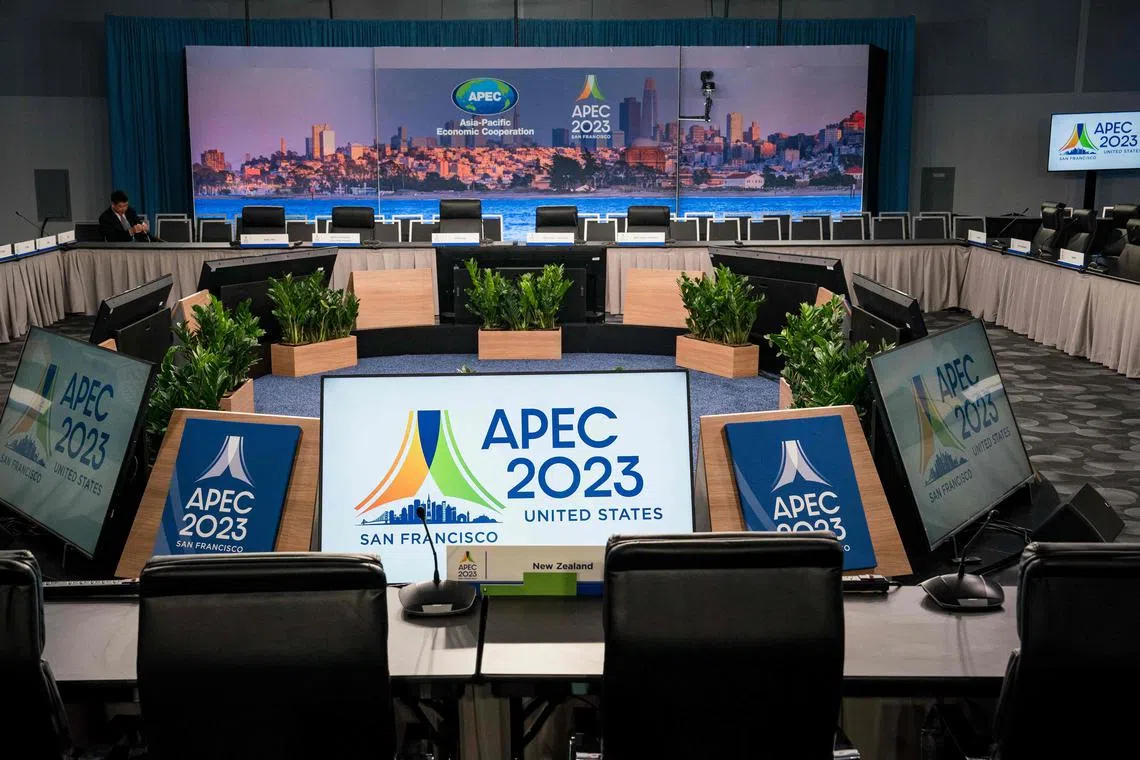US, Indo-Pacific partners need to ‘recalibrate’ trade talks in 2024: Official
Sign up now: Get ST's newsletters delivered to your inbox

President Joe Biden had aimed to showcase the Indo-Pacific Economic Framework during the Apec summit as a symbol of US economic re-engagement in Asia.
PHOTO: AFP
SAN FRANCISCO – The US and its Indo-Pacific Economic Framework (IPEF)
Ms Bianchi said in an interview that the United States Trade Representative office will announce that progress had been made on the language of IPEF trade chapters, but that work will continue.
“We’ve got to recalibrate in the new year with our partners,” Ms Bianchi said on the sidelines of the Asia-Pacific Economic Cooperation (Apec) summit in San Francisco.
“We have a little different path for next year than we thought, because some of the pieces are still ongoing.”
The failure to complete at least some chapters in the IPEF trade pillar is a setback for President Joe Biden, who had aimed to showcase the initiative during the Apec summit as a symbol of US economic re-engagement in Asia that would provide countries a counterweight to China’s growing trade clout in the region.
Ms Bianchi acknowledged that election-year politics could complicate 2024’s negotiations. Another Asian trade deal, the Trans-Pacific Partnership, died during the 2016 election campaign.
Senator Sherrod Brown, a Democrat facing a tough re-election fight in the industrial state of Ohio, last week demanded that Mr Biden drop the trade pillar from the Indo-Pacific initiative. Mr Brown on Wednesday claimed responsibility for the stalling IPEF trade pillar by insisting on enforceable labour provisions.
Some countries, including Vietnam and Indonesia, had rejected US demands for labour rights standards to be enforced through a dispute settlement system similar to that in the US-Canada-Mexico agreement on trade, according to people briefed on the talks.
Ms Bianchi said some of the other 12 IPEF countries in the trade talks “prefer a different approach” on labour and environment chapters, but they support continued negotiations on trade.
“Partners are committed to the work. They want to keep the process going.”
She said that even without benefits such as tariff reductions, IPEF partners see value in provisions on good regulatory practices, trade facilitation and agriculture, which will help drive investment to their economies. REUTERS


